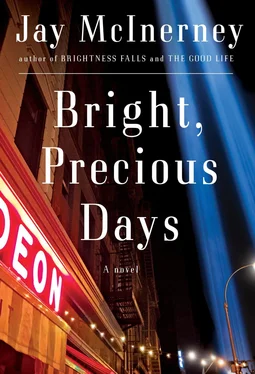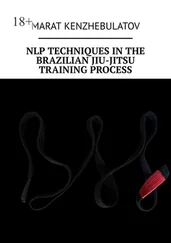Whatever his parentage, Corrine didn’t like the way this animal was looking at Jeremy. At first she thought it was just her imagination, but when she studied her son, his eyes were locked on those of the cat, who was staring back at him disconcertingly.
A late-arriving mother and son were standing in the doorway, and Corrine decided to use this opportunity to get Jeremy out of the liger’s direct line of sight by moving over to occupy empty seats near the end of the row. But the cat’s gaze was still fixed on Jeremy when they settled into their new chairs, a fact that the trainer seemed to register.
“Stop tracking,” he said, whacking it on the side of its neck.
After shaking its huge head and yawning, Lionel returned his gaze to Jeremy. It was terrifying, and Jeremy seemed a little freaked-out himself.
“Mom, why’s the liger staring at me?”
“I’m not sure, honey.”
Dr. Jost continued his spiel: “What we do know is that ligers are missing the growth-inhibiting gene that keeps them at a normal size. They can weigh up to nine hundred pounds and the skulls are forty percent larger than a Bengal tiger’s. Lionel, stop tracking. ”
He whacked the cat again, and that was enough for Corrine. She grabbed Jeremy’s hand and started to lead him out. As they crossed in front of the liger, it crouched and seemed to take aim for a lunge, at which point Dr. Jost tugged hard on its leash. “Behave yourself, Lionel.”
Corrine shoved Jeremy ahead as she watched over her shoulder, the liger stationary but shaking its head against the straining collar. In the hallway, she took his hand and together they ran down the stairs.
“That was pretty scary,” Jeremy said.
Corrine nodded. She didn’t want to overdramatize, but she’d been terrified.
“Was it just me, or did that liger look like it wanted to eat me?”
“Well, let’s just say I didn’t like the way it was looking at you.”
Standing outside on the sidewalk on a warm spring afternoon, she wondered if she’d let her imagination run wild. Just across from the town house was a large trailer towed by a pickup truck with a Bronx Zoo logo. They crossed Fifth Avenue and walked down the park side, under the porous canopy of just-leafing tree branches. She could predict the call from Casey, who would accuse her of being a crazy, overprotective mother, but she really didn’t care.
In fact, when Casey finally did call, it seemed that the Calloways’ premature exit was overshadowed by subsequent events. The story that gradually emerged was that Lionel, while being led to his trailer from the door of the town house, had pounced on a passing jogger, who was now in stable condition at Lenox Hill Hospital.
THEN IT WAS MEMORIAL DAY WEEKEND and the Calloways were packing up the borrowed Land Rover and joining the exodus from Manhattan, funneling out of the Midtown Tunnel into the so-called expressway, joining the hundred-mile-long queue of vehicles creeping toward the outer reaches of Long Island, the traffic eventually congealing like melted butter turning cold at the lower end of the lobster claw of the South Fork late Friday afternoon. Every year they left TriBeCa earlier and every year the drive was longer, or so it felt to Corrine.
The old farmhouse they’d rented for so many years, and the two acres that remained of a once-vast empire of corn and potatoes, within sniffing distance of the ocean, was on the market for $4.9 million. Even in this booming market it seemed unlikely the Polanskis would get that much, and, in fact, it had been listed for nine months when Sara Polanski had called Corrine and offered to rent it one more time if the Calloways agreed to show it, her native thrift triumphing even on the verge of the avalanche of cash that would be hers when the house sold. Already the Polanskis, who’d farmed the land for more than a century, were wealthier than some of the second-home owners from the city, after years of selling off acreage by the sea. Certainly much richer than Russell and Corrine, who’d been instrumental in getting Becca Polanski into Brown, the first alumnus of Bridgehampton High School to matriculate there, and Corrine sent Christmas and birthday cards, while Russell sent books that might appeal to one family member or another — none of which had hurt when it came time to negotiate a deal each spring.
The first weekend in June, they quietly observed their twenty-fifth wedding anniversary, as they had less significant ones, at the Old Stove Pub, a steak house on the highway. Neither seemed inclined to make a big fuss about it, sensibly agreeing to save energy and resources for their big Labor Day party; in the end, they included Tom and Casey, whose own silver jubilee was just a few months off.
Russell took the jitney from the city Thursday evenings and went back into the city every Monday morning, while Corrine, on hiatus from her job, stayed out with the kids and adhered rigorously to the South Beach diet. Russell talked to the children every day during the course of the week; toward the end of July, he and Jeremy camped out at the Books of Wonder bookstore in Chelsea, where they communed with live owls and several hundred fans waiting for the midnight release of the final Harry Potter novel. That summer, except for a few John Edwards partisans, everyone was divided into Hillary and Obama camps, and the arguments were heated around the pools and fire pits.
Tom and Casey had lent them their old Land Rover, a stylish, if not terribly reliable, vehicle in regulation hunter green, and thus they were able to spend yet another season beside the ocean, going to movie premieres in East Hampton with the actors and directors, arranging play dates with the children of a media mogul, playing grass-court tennis in Southampton with the spawn of great American robber barons. It was a life they’d been living for years, and therefore unremarkable to them, until some minor dislocation or embarrassment highlighted its absurdities. Storey’s desire to keep a horse at the nearby stable, as some of her friends did, had to be thoroughly discouraged. The proximity to so much wealth could be infectious; only last year Russell had talked about buying into a bankrupt vineyard. Likewise, unless they were included by someone who’d purchased a table, they had to find clever excuses for declining invitations to the charity benefits that had spread east to the Hamptons in recent years, some of which ran to a thousand bucks a head. And yet, many of their friends and their children’s friends were here, and over the years they’d carved out a place for themselves in the Darwinian social fray without violent effort or expenditure. They were well liked, and their parties fashionable — the kind of gatherings that mixed what was left of the literary and artistic communities with some of the Southampton blue bloods and the East Hampton Democratic Party politicos and the Amagansett Saturday Night Live crowd.
Even the hedge funders who’d bought up most of the oceanfront and the dentists and dermatologists whose houses dotted the former potato fields had a soft spot for the founding myth of a seaside arts colony, for the days when Pollock and de Kooning had lurched around the same sand dunes as Capote and Albee. The Calloways somehow managed to inherit this tradition; one of the many glossy giveaway publications that chronicled the summer scene had recently compared them to Gerald and Sara Murphy, the great host and hostess of the Lost Generation, which delighted Russell, who’d published a book about them, though Corrine considered the comparison imperfect on the detail of the Murphys’ inherited wealth.
Their Friday-before-Labor-Day party had become a fixture on the Hamptons calendar, and Corrine was always amazed to find herself being courted during the summer by those who hoped to get invited. They tried to hold the guest list to a hundred, but last year at least twice that many had showed up. Certainly no one came for the food, although Russell seemed proud of the chili and cornbread and salad he made with the help of a local chef, the bulk of the budget going to booze, wine and beer. They hired three bartenders and three servers and hoped it wouldn’t rain, since the crowd inevitably overflowed the house, and a tent was beyond their means. It was exhausting, but it would kill Russell to give it up.
Читать дальше












